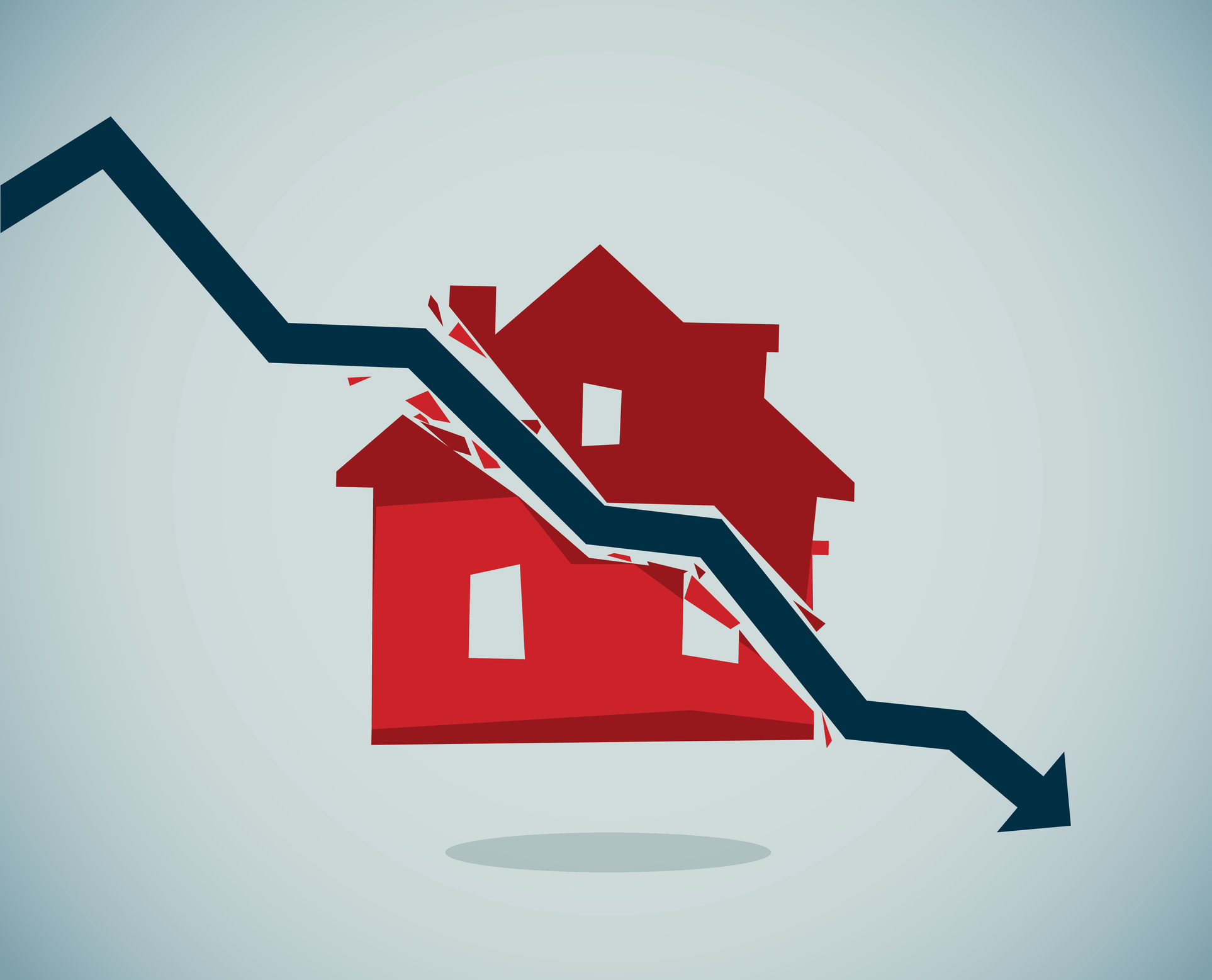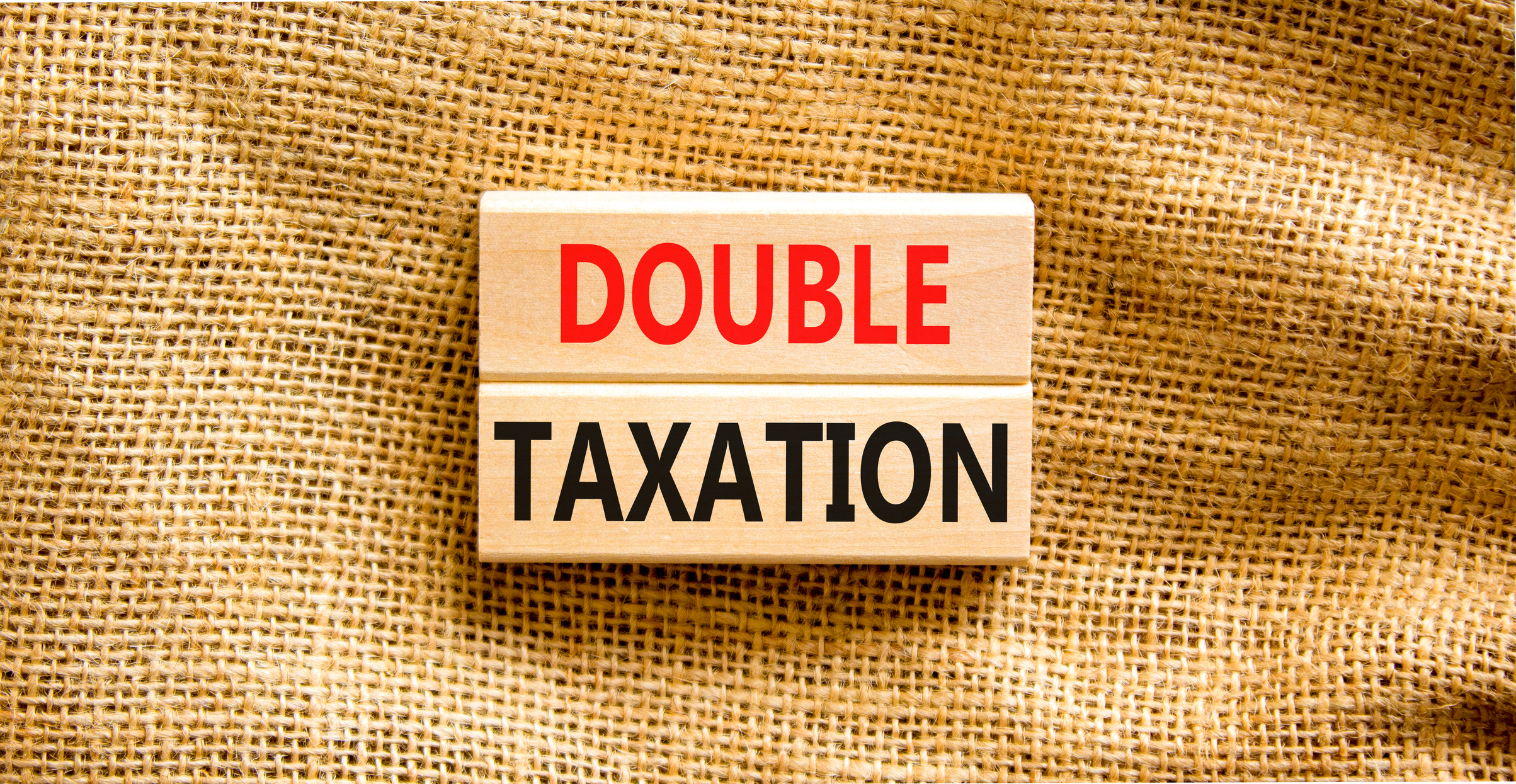2025 SALT Cap Could Hurt Top 'Hidden Home Cost'
The GOP tax bill could make hidden homeowner costs worse for you. Here’s how.


Profit and prosper with the best of Kiplinger's advice on investing, taxes, retirement, personal finance and much more. Delivered daily. Enter your email in the box and click Sign Me Up.
You are now subscribed
Your newsletter sign-up was successful
Want to add more newsletters?

Delivered daily
Kiplinger Today
Profit and prosper with the best of Kiplinger's advice on investing, taxes, retirement, personal finance and much more delivered daily. Smart money moves start here.

Sent five days a week
Kiplinger A Step Ahead
Get practical help to make better financial decisions in your everyday life, from spending to savings on top deals.

Delivered daily
Kiplinger Closing Bell
Get today's biggest financial and investing headlines delivered to your inbox every day the U.S. stock market is open.

Sent twice a week
Kiplinger Adviser Intel
Financial pros across the country share best practices and fresh tactics to preserve and grow your wealth.

Delivered weekly
Kiplinger Tax Tips
Trim your federal and state tax bills with practical tax-planning and tax-cutting strategies.

Sent twice a week
Kiplinger Retirement Tips
Your twice-a-week guide to planning and enjoying a financially secure and richly rewarding retirement

Sent bimonthly.
Kiplinger Adviser Angle
Insights for advisers, wealth managers and other financial professionals.

Sent twice a week
Kiplinger Investing Weekly
Your twice-a-week roundup of promising stocks, funds, companies and industries you should consider, ones you should avoid, and why.

Sent weekly for six weeks
Kiplinger Invest for Retirement
Your step-by-step six-part series on how to invest for retirement, from devising a successful strategy to exactly which investments to choose.
Homeownership can be a source of joy for many. Whether it’s a fresh start in a different locale or a new life with a loved one, some might call owning a home the “American Dream.”
But the financial costs of homeownership can be a nightmare.
The average annual cost of owning and maintaining a single-family home in the U.S. is over $21,000 a year, according to a 2025 Bankrate study.* Property taxes, maintenance fees, and other so-called “hidden home costs” have some homeowners paying over $34,000 annually in their state.
From just $107.88 $24.99 for Kiplinger Personal Finance
Become a smarter, better informed investor. Subscribe from just $107.88 $24.99, plus get up to 4 Special Issues

Sign up for Kiplinger’s Free Newsletters
Profit and prosper with the best of expert advice on investing, taxes, retirement, personal finance and more - straight to your e-mail.
Profit and prosper with the best of expert advice - straight to your e-mail.
Not to mention, recent political movements could make things challenging for American homeowners. The highly debated state and local tax (SALT) deduction could exacerbate home costs and lead to more expensive federal tax bills in 2026. Here’s what to know.
*Bankrate’s ‘hidden home cost of homeownership study’ included 49 out of the 50 U.S. states. New York was excluded due to data limitations.
Property tax among top home costs
As home prices have skyrocketed 197% in the last twenty-five years, hidden home costs are also on the rise. Here’s the pricetag for several items you might not expect when buying a home, according to Bankrate’s survey:
- Home maintenance. The average cost of maintaining a home is over $8,800 per year.
- Utilities and energy. The average annual bill for these services is nearly $4,500.
- Property taxes. Homeowners can expect to pay an average $4,316, if not higher, annually.
- Home insurance. Insuring a single-family home can cost almost $2,300 per year.
- Internet and cable. Homeowners pay an average of $1,515 annually for cable and internet services.
*These numbers come from one survey, costs and averages can vary widely by state and coverage amounts in the case of home insurance.
Another Bankrate survey revealed that nearly half of homeowners with buying regrets cited maintenance and other hidden costs as being “more expensive than expected.” Unanticipated costs, which can include property taxes, were the most common source of buyer regret.
SALT deduction cap could make property taxes more expensive
The SALT deduction has allowed taxpayers who itemize to claim state and local taxes on their federal return for over one hundred years.
But the $10,000 “cap” on SALT — limiting how much of a deduction for state and local taxes taxpayers may claim — has only been in place for about 7-8 years as of 2025. And has just been raised (temporarily) under Trump's new mega tax bill, often called the "One Big Beautiful Bill" (OBBB).
Created to offset the Tax Cuts and Jobs Act (TCJA) tax cuts, the “SALT cap” in the OBBB:
- Temporarily raises the SALT cap from $10,000 to $40,000 starting in 2025.
- Phases out for incomes above $500,000 (married filing jointly). (Incomes above $500,000 would still be subject to the $10,000 cap.)
- Will increase by 1% each year through the end of 2029.
- Reverts to the $10,000 cap for 2030 and beyond.
So what does this have to do with property taxes?
Well, a big part of your state and local tax (SALT) deduction may come from your property tax bill.
When the SALT cap hinders how much you can claim, that could be problematic for your property tax bill, particularly in states with high property taxes.
Worst states for SALT Cap
While taxpayers in all states can be affected by a sustained SALT cap, seven could be hit the hardest when looking at the state and local tax collections per capita from the Tax Foundation:
- District of Columbia (D.C.), where taxpayers pay an average of $14,974 in annual state and local taxes.
- New York with an average of $12,685 per capita.
- California, at $10,319 per capita.
- Connecticut with $9,718 per capita.
- Hawaii, with $9,503 per capita.
- New Jersey at $9,366 per capita.
- Massachusetts, with $9,341 per capita.
Although the above figures may have some state and local taxes that aren’t SALT deductions, per capita figures include property taxes, income taxes, and sales taxes — all of which may be included in SALT.
And keep in mind, the per capita numbers are just averages. SALT caps can significantly impact taxpayers who pay more in state and local taxes, especially as property tax rates soar.
Bottom line: Property tax rates are on the rise
Property taxes on single-family homes have risen nearly 7% in recent years, per ATTOM, a real estate data company.
- That’s almost double what the rate was the year before, and the largest in the last five years.
- If property taxes continue to rise, and the SALT cap remains, taxpayers could be sandwiched between having to pay higher property tax bills and being unable to claim a full deduction on those increased costs.
You may want to consult with a tax professional to prepare for legislative outcomes. Many families choose mid-year to get some tax planning done, and staying ahead of the curve can help you best respond to changes made on Capitol Hill.
Read More
- SALT Deduction: Three Things to Know
- States With the Lowest Property Tax
- Ten Tax Breaks for Homeowners and Homebuyers
Profit and prosper with the best of Kiplinger's advice on investing, taxes, retirement, personal finance and much more. Delivered daily. Enter your email in the box and click Sign Me Up.

Kate is a CPA with experience in audit and technology. As a Tax Writer at Kiplinger, Kate believes that tax and finance news should meet people where they are today, across cultural, educational, and disciplinary backgrounds.
-
 Quiz: Do You Know How to Avoid the "Medigap Trap?"
Quiz: Do You Know How to Avoid the "Medigap Trap?"Quiz Test your basic knowledge of the "Medigap Trap" in our quick quiz.
-
 5 Top Tax-Efficient Mutual Funds for Smarter Investing
5 Top Tax-Efficient Mutual Funds for Smarter InvestingMutual funds are many things, but "tax-friendly" usually isn't one of them. These are the exceptions.
-
 AI Sparks Existential Crisis for Software Stocks
AI Sparks Existential Crisis for Software StocksThe Kiplinger Letter Fears that SaaS subscription software could be rendered obsolete by artificial intelligence make investors jittery.
-
 How to Open Your Kid's $1,000 Trump Account
How to Open Your Kid's $1,000 Trump AccountTax Breaks Filing income taxes in 2026? You won't want to miss Form 4547 to claim a $1,000 Trump Account for your child.
-
 In Arkansas and Illinois, Groceries Just Got Cheaper, But Not By Much
In Arkansas and Illinois, Groceries Just Got Cheaper, But Not By MuchFood Prices Arkansas and Illinois are the most recent states to repeal sales tax on groceries. Will it really help shoppers with their food bills?
-
 7 Bad Tax Habits to Kick Right Now
7 Bad Tax Habits to Kick Right NowTax Tips Ditch these seven common habits to sidestep IRS red flags for a smoother, faster 2026 income tax filing.
-
 New Plan Could End Surprise Taxes on Social Security 'Back Pay'
New Plan Could End Surprise Taxes on Social Security 'Back Pay'Social Security Taxes on Social Security benefits are stirring debate again, as recent changes could affect how some retirees file their returns this tax season.
-
 Living in One State, Working in Another: How to Avoid a Tax Season Headache
Living in One State, Working in Another: How to Avoid a Tax Season HeadacheState Tax Living and working in two states can take a heavy toll on your paycheck and give you a headache come tax time. Here's what to know.
-
 10 Cheapest Places to Live in Colorado
10 Cheapest Places to Live in ColoradoProperty Tax Looking for a cozy cabin near the slopes? These Colorado counties combine reasonable house prices with the state's lowest property tax bills.
-
 New Gambling Tax Rule Impacts Super Bowl 2026 Bets
New Gambling Tax Rule Impacts Super Bowl 2026 BetsTaxable Income When Super Bowl LX hype fades, some fans may be surprised to learn that sports betting tax rules have shifted.
-
 Should You Do Your Own Taxes This Year or Hire a Pro?
Should You Do Your Own Taxes This Year or Hire a Pro?Taxes Doing your own taxes isn’t easy, and hiring a tax pro isn’t cheap. Here’s a guide to help you figure out whether to tackle the job on your own or hire a professional.